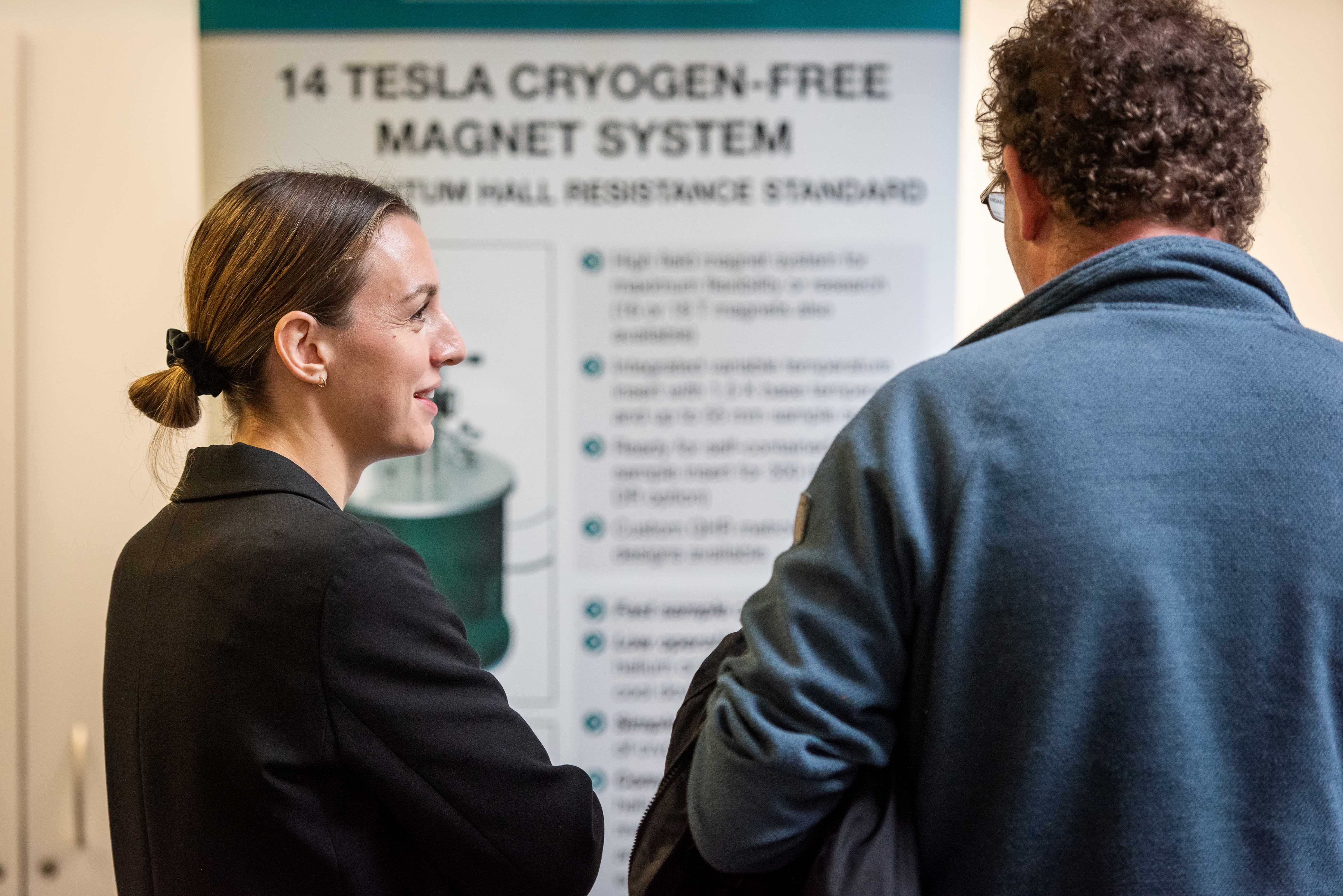The meeting, which took place from 30 August - 1 September 2023 in the East Building, was organised within the framework of the European COST Action Superqumap. This brought together leading researchers from across Europe to collaboratively explore radical new approaches to superconducting-based quantum devices. These could, for example, form the building blocks of new generations of quantum computers.
The workshop focussed on the recent advances in materials design achieved by splitting off atomically thin layers from two-dimensional crystals. These layers are then stacked back together, building ‘designer’ heterostructures that don’t normally exist in nature.
This method allows researchers to combine, for example, superconducting layers that exhibit zero electrical resistance with magnetic layers and their associated strong magnetic fields. The resulting devices can then operate using entirely new physical principles.
A highly interdisciplinary arena
The workshop provided a highly interdisciplinary arena for around 55 scientists from 19 different European countries, including experts in materials synthesis, device fabrication, measurement, and theory. The delegates were a mixture of senior and early career researchers, as well as many PhD students who gave short format talks in a dedicated Young Researcher Session. Alongside speaker sessions, a PhD student poster session and a guided walking tour of Bath provided opportunities for lively discussions and the exchange of ideas.
Several companies also set up exhibition stands in the East Building for the duration of the meeting. These included Quantum Design and Cryogenic Limited, who generously sponsored the PhD student poster prizes.
Among the winners were Lukas Nulens from the Katholieke Universiteit Leuven, who won 1st prize; Celia Gonzalez Sanchez from the Universidad Autónoma de Madrid, who won 2nd prize; and Junyi Zhao from the University of Cambridge, who won 3rd prize.
Professor Simon Bending from the Department of Physics who led the organising team, said: “The workshop provided a unique opportunity to bring together leading experts in low dimensional superconductivity and magnetism from across the whole of Europe to exchange ideas and pioneer new developments in the field of solid-state quantum devices.
While much of this research is still at an early stage, it nevertheless has very strong potential for contributing to future hardware for quantum computation and other quantum technology applications.”

